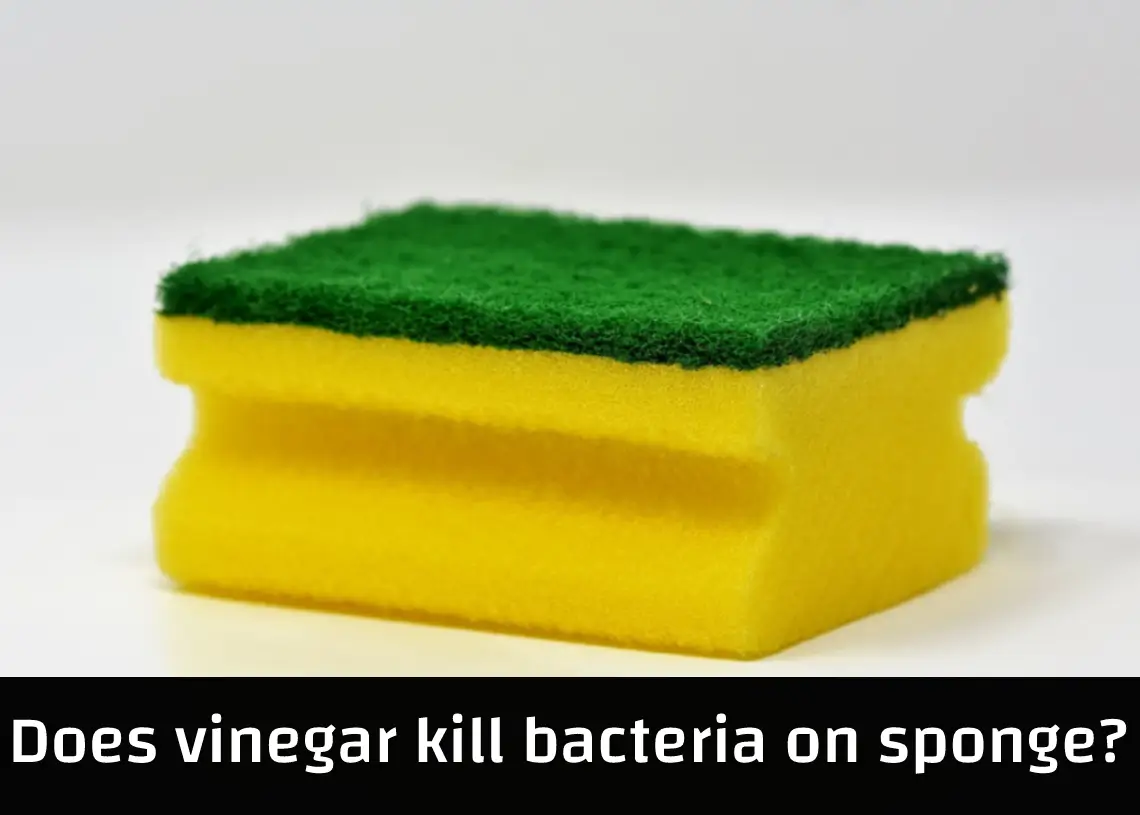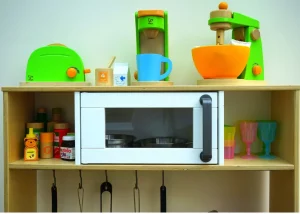Have you ever wondered if your kitchen sponge is harboring bacteria? It’s a common question and one that many of us have asked ourselves. We know that cleaning our kitchen surfaces is important in order to prevent the spread of bacteria, but is it enough? One popular solution is to use vinegar to kill bacteria on sponges. But does vinegar really kill bacteria on sponges? To answer this question, it’s important to look at the science behind vinegar and how it interacts with bacteria. By understanding the science behind vinegar, we can begin to understand how to effectively use it to rid our sponges of bacteria.
Overview of Bacteria
Bacteria are single-celled microorganisms that live in almost every environment on Earth. They are found in soil, water, animals, plants, and even in the air around us. In fact, there are so many bacteria on the planet that there are more bacteria than other types of organisms combined. While bacteria are typically harmless, a few types can cause diseases in humans.
Bacteria cause many types of infections, including urinary tract infections, foodborne illnesses, respiratory infections, and even sexually transmitted diseases. They can also cause infections in wounds.
There are many ways to kill bacteria, including the use of household disinfectants. When choosing a disinfectant, it’s important to select one that’s effective against the types of bacteria that are likely to be on the surface or item that needs to be disinfected.
What is Vinegar?
Vinegar is a common household item that is often used in cooking or as a cleaning solution. It is made from fermenting a sugar source such as fruit, vegetables, or grains. Vinegar is acidic and it also contains acetic acid, which gives it its sour taste.
Vinegar is typically made from a mixture of water and alcohol fermented by bacteria. In addition to being used in cooking and cleaning, vinegar is also a popular natural remedy. People use vinegar for a wide variety of health and beauty treatments, including using it as a beauty product and for health issues.
Does Vinegar Kill Bacteria?
Do you know how to kill bacteria? There are a wide variety of household products that can be used to kill bacteria and other types of germs. One of the most common household items used to kill bacteria is vinegar. It’s important to note that vinegar is not a disinfectant.
It is an antimicrobial product that is used to kill bacteria and other microorganisms. When disinfectants come into contact with germs, they kill them. Antimicrobial products are different. They don’t kill bacteria; they prevent bacteria from growing.
Vinegar is an effective natural solution for killing bacteria. It is an acid, which means it has a low pH that makes it difficult for bacteria to grow on surfaces it is applied to. Vinegar may be effective in killing a wide variety of bacteria, but it should not be used on all surfaces or in all situations. It is important to read the directions on the bottle of vinegar that you purchase to see what it is effective against.
How to Use Vinegar to Kill Bacteria on Sponges
Do you have bacteria on your sponge? If so, you can use vinegar to kill bacteria on sponges. First, you need to soak your sponge in vinegar. If your sponge is dirty, you may want to pre-soak it in water before adding vinegar.
However, if your sponge is already clean, then it is fine to add vinegar immediately. Next, put the sponge in a container and cover it with vinegar. Leave the sponge in the vinegar for at least 24 hours. After soaking your sponge in vinegar, rinse it off. It’s important to note that this method may not completely kill all of the bacteria on your sponge.
Instead, it will help to slow down the growth of bacteria. When vinegar is in contact with a surface, it works to break down the bacteria’s cell walls, causing bacteria to die over time.
Other Methods to Kill Bacteria on Sponges
Another way to kill bacteria on sponges is to microwave them. To do so, put your sponge in a microwave-safe container with a small amount of water and microwave it for one minute.
You may want to put your sponge in a microwave-safe container with a small amount of water and microwave it for one minute. You can also boil your sponge in water for 10 minutes. These methods will kill the bacteria on your sponge.
However, like with vinegar, these methods will not completely kill all of the bacteria on your sponge. Instead, they will simply reduce the number of bacteria living on your sponge over time.
For maximum effectiveness, you may want to repeat these methods with your sponge once a week or more often if you use it heavily. Another option is to use a disinfectant spray that is effective against bacteria, such as Lysol.
To kill bacteria on your sponge, spray your sponge with the disinfectant and let it dry. Make sure the disinfectant spray you use is effective against the types of bacteria that are likely to be on your sponge.
Conclusion: Does vinegar kill bacteria on sponge?
Does vinegar kill bacteria on sponge? Yes, vinegar kills bacteria, which is one of the reasons it is such a useful cleaning product. It is important to note that vinegar will not completely kill all of the bacteria on your sponge. Instead, it works to reduce the number of bacteria living on your sponge over time. If you are concerned about the amount of bacteria on your sponge, you may want to use one of the methods listed above to kill bacteria on your sponge.




